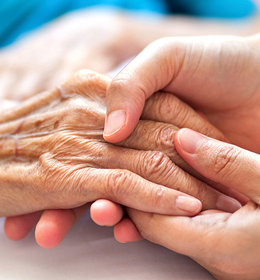
It seems reasonable to assume that most people would prefer to be at home and as free of intrusive medical care as possible at the end of life vs. being in a hospital and subjected to uncomfortable, pointless medical interventions. New research indicates that may not be true, which provides a reminder not to put too much stock in “reasonable” assumptions. True patient engagement in medical decision-making requires clinicians and all health advisors, including family members, to put aside generalized expectations and have authentically individual conversations with patients.
New Billing Code for ACP Prompts New Research
The research took advantage of a billing code for advance care planning (ACP) introduced in January 2016 by the Centers for Medicare & Medicaid Services. The code allows healthcare practitioners to bill for a discussion with a patient about ACP. Researchers from the University of Pennsylvania accessed claims data for 18,484 Medicare Advantage beneficiaries with a diagnosis of “serious illness” between October 2015 and 2016. They compared utilization of health services between a cohort among the study group with a billed ACP discussion and a similar group with no documented ACP. The study examined various outcomes in the six months following the ACP, with an appropriate “pseudo-index” date for the non-ACP group. The researchers believe that this is the first study to have examined the apparent effects of ACP consultation.
The study’s overall findings—patients with billed ACPs had higher rates of hospice enrollment and death, less use of emergency departments and life-sustaining medical therapies—appear generally to support accepted assumptions. The study authors also report that patients with ACPs were more likely to be hospitalized and receive care in an intensive care unit (ICU), which apparently drove higher medical costs for the ACP group and seem counter to assumptions.
Call for a More Nuanced Taxonomy
The authors’ discussion of study limitations and an invited commentary, however, indicate important nuances that emphasize the limitations of drawing conclusions from insufficient data. They also, of course, indicate the need for further study.
The study authors say they do not know the specific reasons for the hospitalizations in the ACP group, who may well have been seeking alleviation of symptoms, not life-saving treatment. The common assumption that hospitalization is to be summarily avoided may not acknowledge the quality of care and life improvement it can offer.
In the commentary, physicians from New York City and Toronto cite a study of physician patients with results that run counter to popular assumptions. If we accept the common wisdom that many patients and family members tend to over-use medical care at the end of life, common sense would indicate that physicians would be more discerning and chose less medical intervention. To the contrary, the study found that physicians were more likely to choose or accept a full range of end-of-life care, including hospitalization, ICU care, chemotherapy, palliative care and hospice. The commentary authors point out that “while seemingly paradoxical,” hospitalization and intensive care use can be more appropriate and therefore more “comfortable” for certain conditions and patient circumstances:
…what appears to be paradoxical may simply indicate an insufficient understanding of the value that certain types of care may hold for patients and families and how this may ultimately drive care choices. In particular, informed and value-aligned care may look different for patients with different conditions and symptoms.
They conclude their commentary with a call for honoring the complexity of decisions that patients and families face regarding medical care in the last months of life. True engagement takes careful examination both of options in care and the patient’s wishes. The authors suggest,
…it may be appropriate to move toward a more nuanced taxonomy of high-quality care in which different types and patterns of health care utilization at the end of life are considered in a manner that best reflects their value to patients and families.
Further Reading
Please see earlier posts about advance and end-of-life care planning on Engaging Patients:
Advance Directives and Other Medical Tall Tales
A Tremble and a Lump: Why Race Matters in End-Of-Life Conversations





2 Comments
I don’t have a formal study to cite, but from personal experience as a community volunteer who organizes a presentation titled, THE REALITIES OF ADVANCED MEDICAL INTERVENTIONS, that even when patients and their family members have had ACP discussions with their provider (utilizing the ACP billing code), those brief talks are not adequate to making truly informed decisions on what they might want — or not want — for their end-of-life care.
The billing codes do offer physicians some compensation for ACP, but these complicated conversations require much more time than most physicians have in today’s medical landscape.
Invariably, attendees of our REALITIES’ presentation, comment, “Ohmigosh! I need to re-do my advance directive because now I know what _______ REALLY means or what that ___________ means. My doctor didn’t have time to fully explain that!”
While undoubtedly the provider conversations are worthwhile, it is obvious to our REALITIES volunteer team, that those conversations are only one piece of the puzzle.
Our presenters are ICU nurses, a retired nephrologist, and a former hospice nurse — when they explain in detailed layperson terms (not to persuade or dissuade) what CPR, feeding tubes, intubation, mechanical ventilation, PEG tubes, perfusion, pressors, tracheostomy, dialysis could mean for patients and their families, in the short- and the long-term, attendees report they are relieved to have this more in-depth education. And, providers are glad the REALITIES presentation is available in community-based settings — one outcome is the REALITIES’ talk has prompted acceleration of provider billing code use because patients initiate the conversation with their doctors.
I sure hope half-baked studies don’t muddy the water — we are making progress. Let’s build on it.
Micki, thank you for your thoughtful comment.